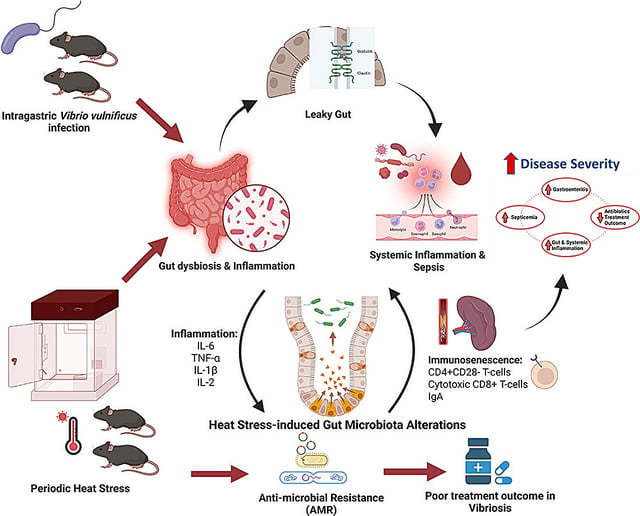Overview
- A University of California, Irvine study published in Science of the Total Environment shows that aging combined with climate-relevant heat stress impairs gut integrity and immune response
- Aged mice exposed to prolonged high temperatures exhibited significant intestinal barrier damage, systemic inflammation, immune dysfunction and a surge in antibiotic-resistant gut bacteria
- Administering the beneficial microbe Roseburia intestinalis to heat-stressed aged mice restored immune cell function and reduced infection indicators
- The research provides the first evidence linking climate-driven heat stress with heightened susceptibility to deadly Vibrio vulnificus infections in older populations
- Supported by the National Institute of Environmental Health Sciences, the findings highlight the potential for gut health strategies to bolster resilience during record-breaking heat waves
